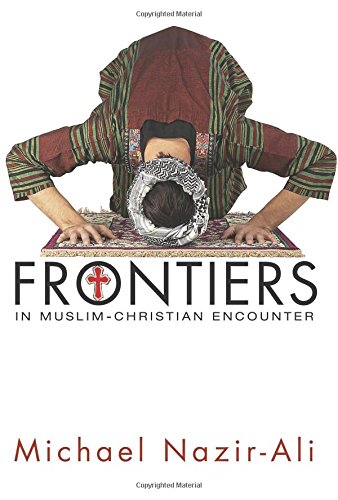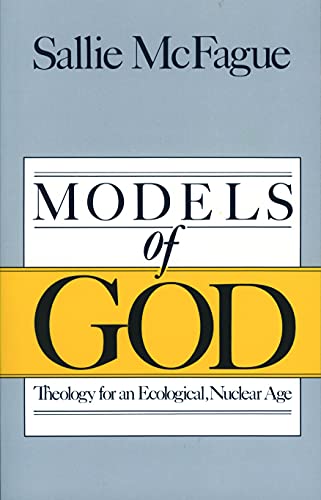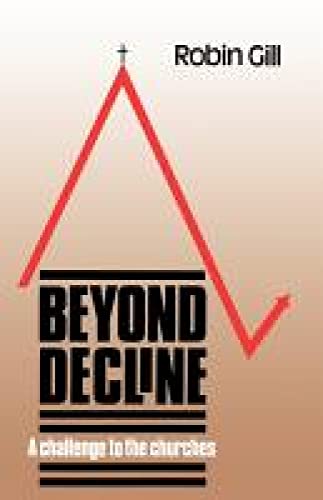Frontiers in Muslim-Christian Encounter
Written by Michael Nazir-Ali Reviewed By Vivienne StaceyBishop Michael Nazir-Ali writes from his evangelical perspective and personal experience of life in the Islamic Republic of Pakistan where the Christian community is the largest minority (about 3% of a total population of 101 million according to a 1987 estimate). His perspective in no way limits him—he has studied deeply, travelled widely, is internationally recognized and is at present Assistant to the Archbishop of Canterbury and Co-ordinator of studies for the 1988 Lambeth Conference.
His book is in essence his reflection on crucial issues of Muslim-Christian Encounter over the last 15 years and is a collection of papers under this main heading but divided into four more specific areas: ‘Theology in Encounter’, dealing with the doctrine of God, Christology and the Scriptures; ‘Missiology in Context’, dealing with the gospel’s offer of wholeness, contextualization, and the church in Pakistan as a case study; ‘Faith in Dialogue?’ dealing with Christianity in relation to other faiths, especially Islam. A chapter on ‘A Christian Assessment of the Cult of Prophet-Veneration’ ends this section. The last section deals with ‘The Church and the Social Order’, focusing on a situation of increasing Islamization. One of the themes is the gospel and repression.
For any who are concerned with ministry to Muslims and the opportunities and problems of the church in minority situations, Nazir-Ali’s book will be a stimulation and a help. The fact that so much comes from a Pakistani situation adds to the value of the insights in that a devout Christian scholar seeks to make his contribution to ‘understanding the times’ so that the church may know its role (1 Ch. 12:32). Pakistan has significance far beyond its borders as it is the Islamic political experiment par excellence of the 20th century. Bishop Kenneth Cragg, to whom Nazir-Ali often refers in his book, wrote that ‘Pakistan, as concept, policy and fact, must be seen as the surest Muslim index to Islam in our time, doing for its contemporary definition what the Hijra did in the seventh century’. Christians as well as Muslims find in Pakistan a model, a case study, a ‘laboratory of Islam’. Christians see clues to understanding how a legally recognized minority community and church might respond positively to the challenges and pressures of finding its role in a country created in the name of Islam. All that Nazir-Ali has to say on such issues is relevant in various ways to other Christian communities living in areas largely Muslim.
Examples of the author’s incisive comments and stimulating reflections are now given from three of the four sections of his book.
‘Theology in Encounter’: In his chapter on ‘Christology in an Islamic Context’ the writer notes that God in the Muslim view ‘cannot share our suffering because he has never been incarnate’ (p. 28). He quotes the famous poet-philosopher Muhammad Iqbal who in a Persian poem tried to articulate the dilemma of the sensitive Muslim:
God is beyond death and is the essence of life
God does not know what the death of man is,
Though we be as naked birds,
In the knowledge of death we are better than God.
In his next chapter on ‘A Recovery of Traditional Christology in an Asian Context’ the writer’s appreciation of poetry gives him insights we do well to consider. He notes that a ‘study of traditional Christology recalls us to a theology of the Incarnation, aids us in our task of theological reconstruction and reminds us of the importance of devotion in Christological thought’ (p. 44). He refers to the passionate concern in Pakistan to conserve historic Christianity and to relate it to Islam as it is experienced today. A mass of devotional theology is found in poetry, allegory and hymns in Pakistan today. ‘If we are really concerned to promote “a people’s theology”, we must take these expressions of popular devotion very seriously’.
The writer’s section on ‘Faith in Dialogue?’ ends with a chapter on prophet-veneration. ‘The extent of this veneration in modern Pakistani society is astonishing. The society normally adheres to Sunni orthodoxy. But Muhammad-veneration is projected through the mass media, school books and cultural events all of which contribute to the deification of the Arabian Prophet’ (p. 130). ‘Muhammad-veneration implies a rejection of the Muslim view of God’ (p. 137).
The fourth section on ‘The Christian and Social Order’ deals with questions of religious freedom. Pakistani Christians ‘would continue to wish to be treated as equal citizens with freedom of worship and proclamation, free to build, maintain and manage our own institutions’ (p. 144). ‘We must beware of serving only our own community interest. We must work for the good of the entire nation and especially for the poor, the weak and the oppressed’ (p. 145).
As Archbishop David Penman writes in the foreword to Frontiers in Muslim-Christian Encounter, ‘the reader is drawn into the meaning of Christ for those living within a Muslim environment’. Whether or not we live in a Muslim environment we can be enriched by Bishop Michael Nazir-Ali’s reflections.
Vivienne Stacey
Pakistan







